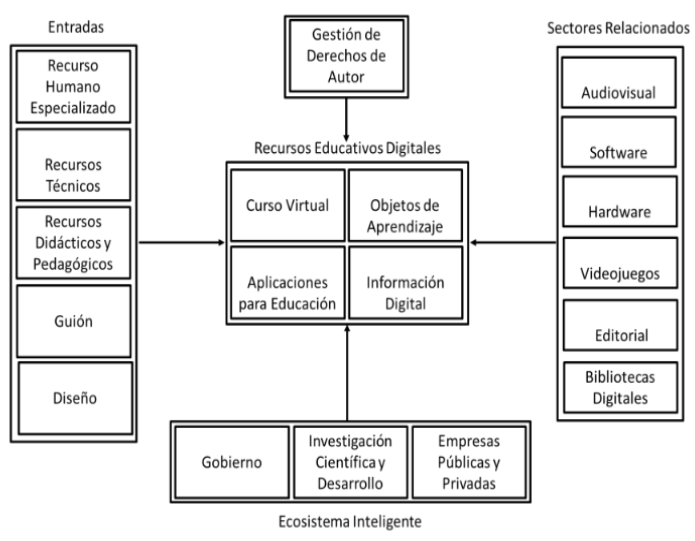Digital content production model for online education
Main Article Content
Abstract
Based on the analysis of the current state of the digital content industry and the regulatory and legal environment of Ecuador –mainly related to Internet security issues and intellectual property rights– and through market research that identifies the needs of users and seizes opportunities and challenges of online education, a digital content production model for online education is recommended. This model is based on a collaborative and intelligent ecosystem scheme and a set of public policies for promoting the digital content industry in Ecuador.
Downloads
Article Details

This work is licensed under a Creative Commons Attribution 4.0 International License.
Authors who publish in this journal agree to the following terms: Authors retain the copyright and guarantee the journal the right to be the first publication of the work, as well as, licensed under a Creative Commons Attribution License that allows others share the work with an acknowledgment of the authorship of the work and the initial publication in this journal. Authors may separately establish additional agreements for the non-exclusive distribution of the version of the work published in the journal (for example, placing it in an institutional repository or publishing it in a book), with acknowledgment of its initial publication in this journal. Authors are allowed and encouraged to disseminate their work electronically (for example, in institutional repositories or on their own website) before and during the submission process, as it may lead to productive exchanges as well as further citation earliest and oldest of published works.
How to Cite
References
[2] Docebo S.p.A. (March 2014). E-Learning Market Trends & Forecast 2014 – 2016: A report by Docebo.
[3] Organization for Economic Co-operation and Development – OECD. (2012). Internet Economy Outlook, 2012 - 2016.
[4] Directorios de portales web, http://www.publicidad.enlinea.ec/ (Consultado enero de 2013).
[5] Top Sites in Ecuador, http://www.alexa.com/topsites/countries/EC (Consultado enero de 2013).
[6] Listado de Universidades y Escuelas Politécnicas a Nivel Nacional http://www.senescyt.gob.ec/UNIVERSIDADES.pdf. (Consultado agosto de 2014).
[7] Portal de Información de la Superintendencia de Compañías, Valores y Seguros, http://appscvs.supercias.gob.ec/portalInformacion/sector_societario.zul (Consultado agosto 2014).
[8] McGorry, S. (2003). Measuring quality in online programs. The Internet and Higher Education.
[9] Costos de aprendizaje e-learning http://www.nwlink.com/~donclark/hrd/costs.html (Consultado marzo de 2015).
[10] Lee-Post, A. (2009). e-Learning Success Model: an Information Systems Perspective. Electronic Journal of e-Learning.
[11] Fagerberg, J. and Godinho, M.M. (2005). Innovation and catching up. The Oxford Handbook of Innovation.
[12] Plan Avanza 2. Plan de Impulso de la Industria de Contenidos Digitales 2011‐2015.

